Our special issue on Automation, Artificial Intelligence and Labor Protection of the @CLLPJ is finally out cllpj.law.illinois.edu Here is a link to the Introduction summarizing the papers of the SI, written by an interdisciplinary group of scholars papers.ssrn.com/sol3/papers.cf…
In my article, I argue that AI poses vital challenges to workers’ privacy and human dignity, as it enable employers’ surveillance in unprecedented ways. I call for social partners to intervene to govern the introduction and use of these technologies papers.ssrn.com/sol3/papers.cf… 
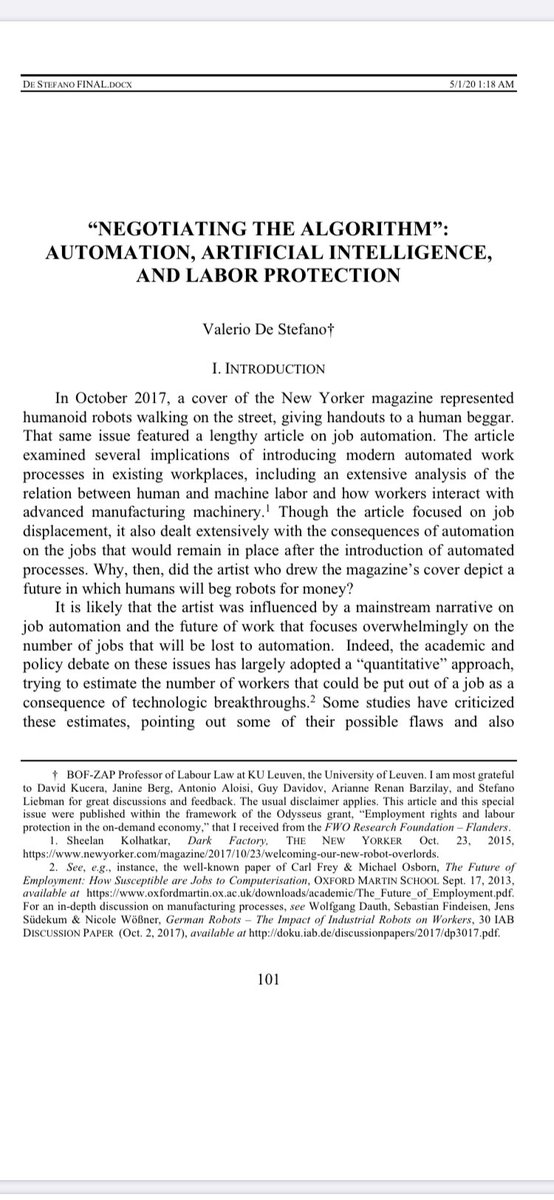
.@phoebemoore starts by explaining the different notions of AI comparing them with the concept of human intelligence. She thus gives examples of AI applications in the world of work and examines OSH risks related to them papers.ssrn.com/sol3/papers.cf… 
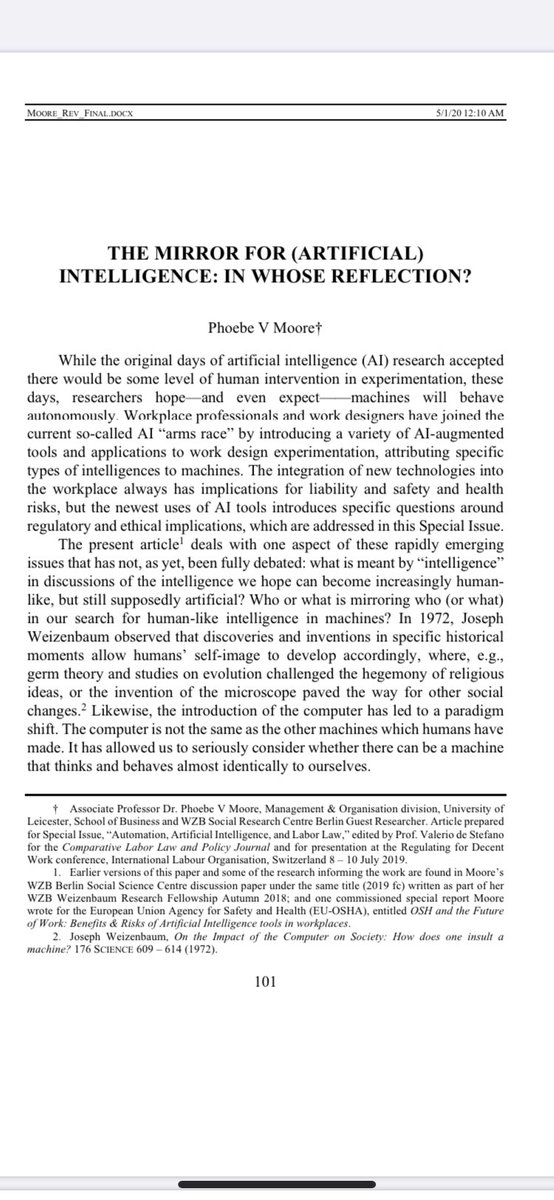
.@janinemberg examines the link between new technologies and the growth of non-standard forms of employment. She argues tech has established a new hierarchy of labor with casual, unremunerated and domestic care work and heteromated labor at its outer rings papers.ssrn.com/sol3/papers.cf… 
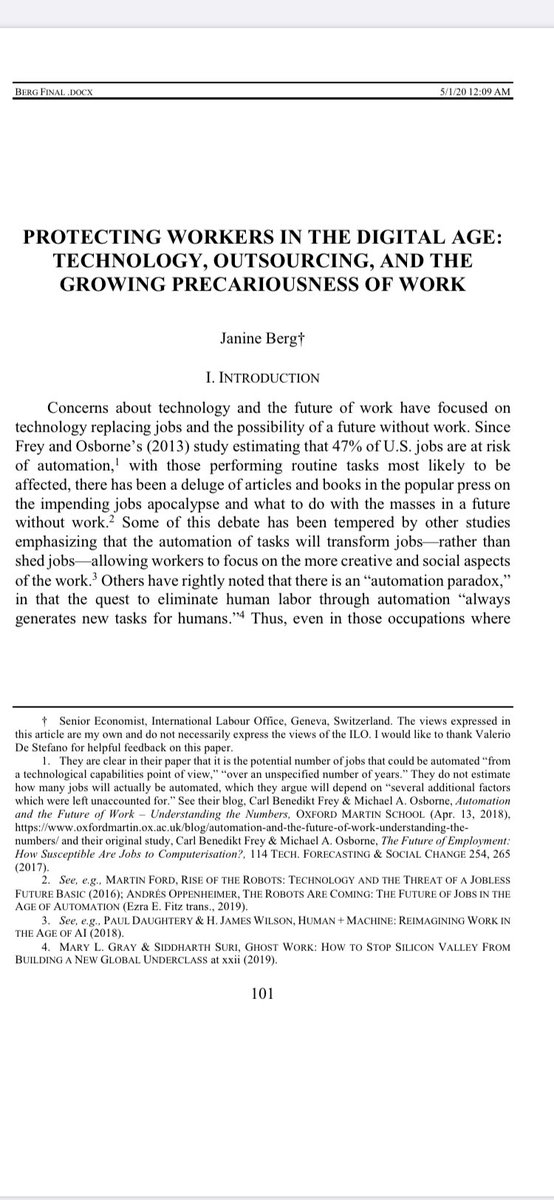
.@_aloisi & @eleninagra approach AI surveillance from the perspective of the EU GDPR, and weight it against national regulation governing it in France, Italy and Germany. They highlight some weaknesses of these systems and reflect on legislative solutions papers.ssrn.com/sol3/papers.cf… 
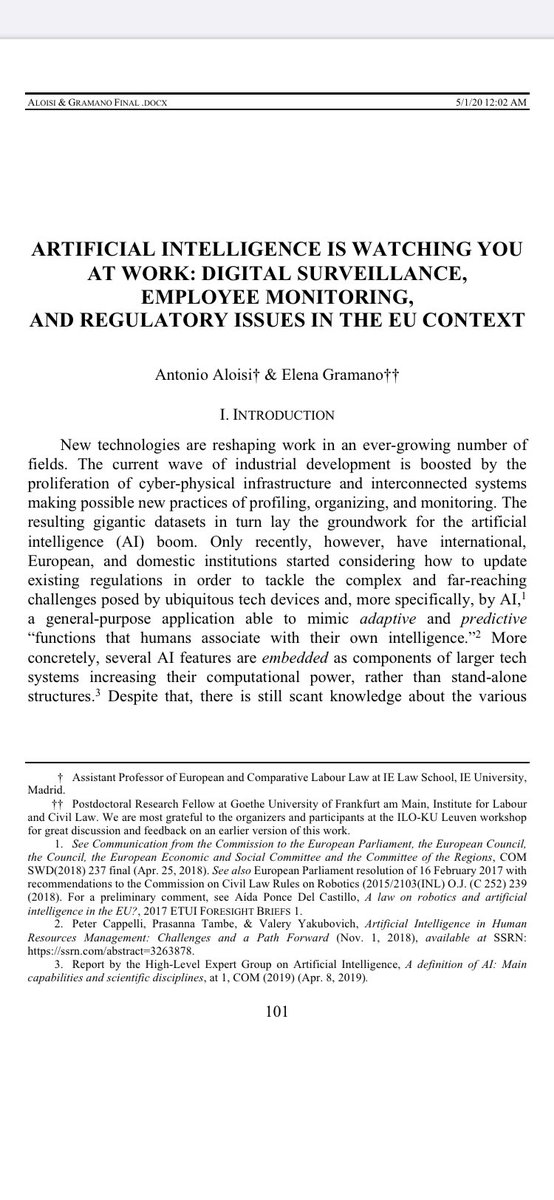
.@JeremiasPrassl deals with AI at work and argues that it is coming for managers’ rather than workers’ jobs, so far. Monitoring and evaluating performance, hiring and firing are increasingly outsourced to machines.This is what makes the real difference with the past, he argues 
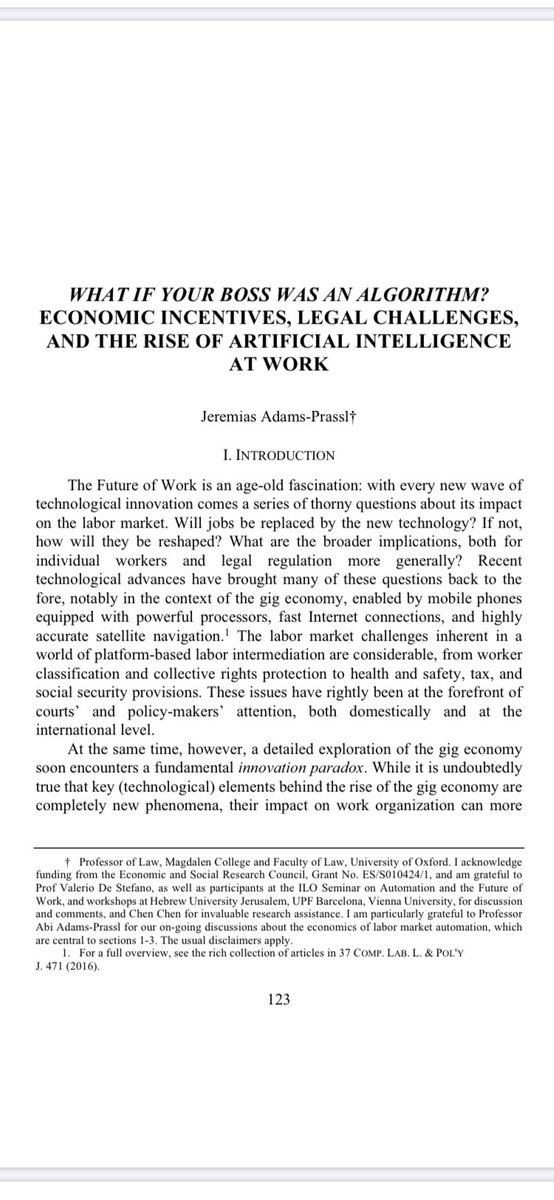
.@frhendrickx examines privacy regulation at the workplace when it comes to big data and AI-monitoring. He traces the history of data protection up to “privacy 4.0” and argues that even the most recent regulation, such as the GDPR, could not be enough to face current challenges 
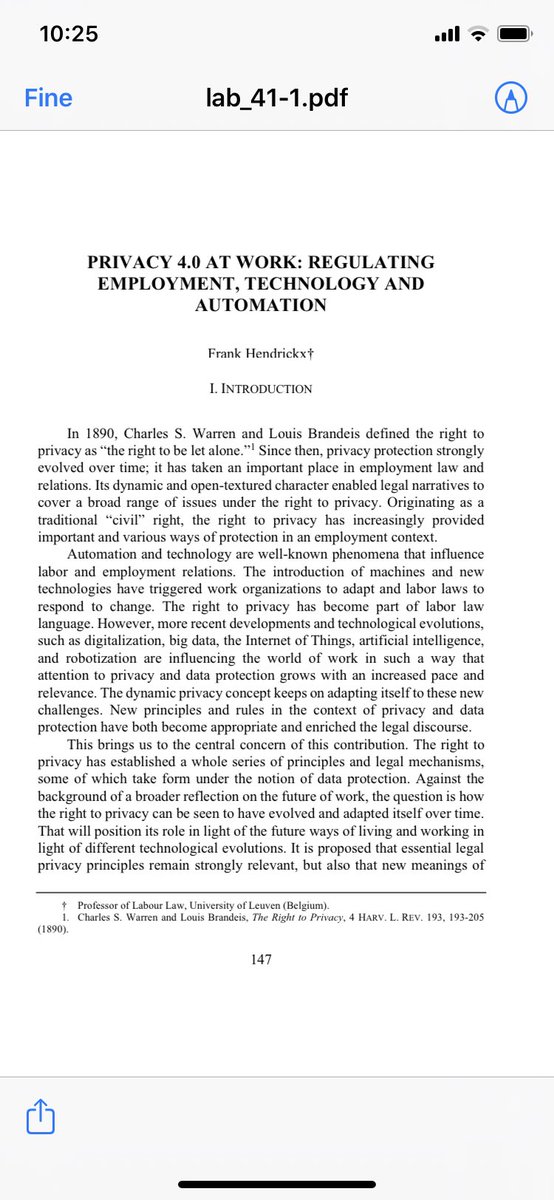
.@ilaria_armaroli & @EmanueleDagnino’s article examines how trade unions have made big data and algorithmic management a bargaining issue; by analyzing collective agreements regulating these issues in various countries, they show that “negotiating the algorithm” is possible 
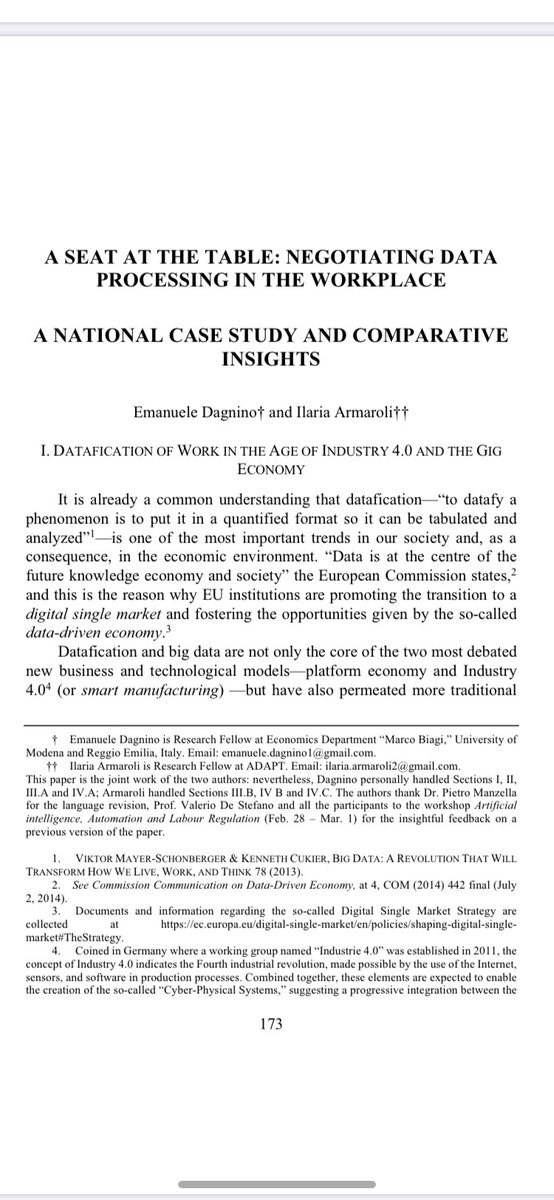
.@Prof_MCherry’s article is the result of an in-depth historical search through the archives of the @ilo, informing us about the discussions held at the Organization re the many past waves of fear about job displacement and mass unemployment driven by technology 
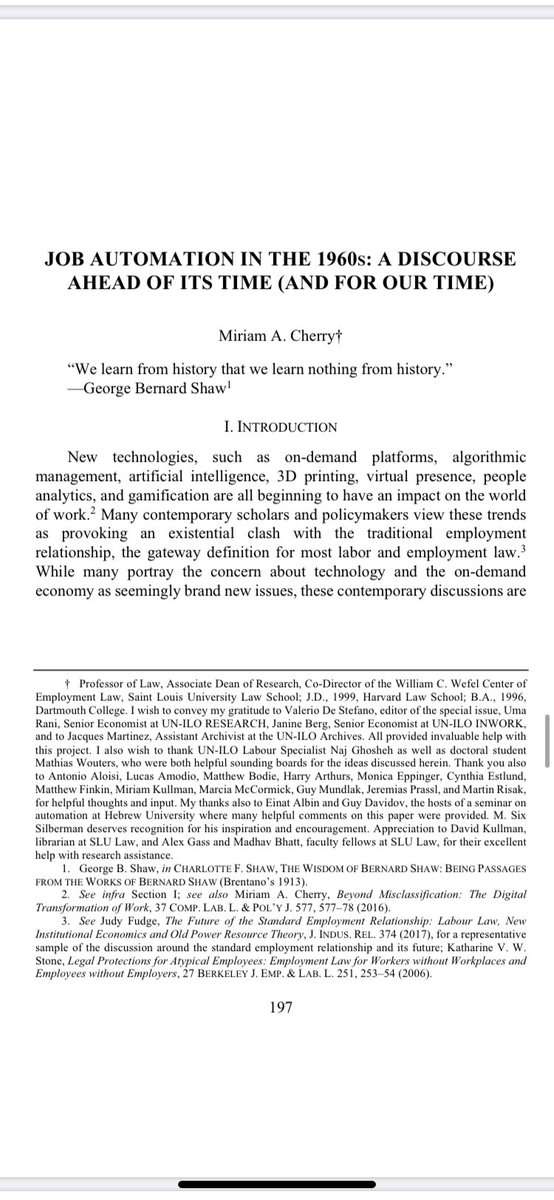
The article of @CLLPJ’s editor Matt Finkin examines past debates on job displacement in the United States and compares them to ours. He argues that our crucial concern should not be about job losses but about how technology now fosters worse working conditions for many workers 
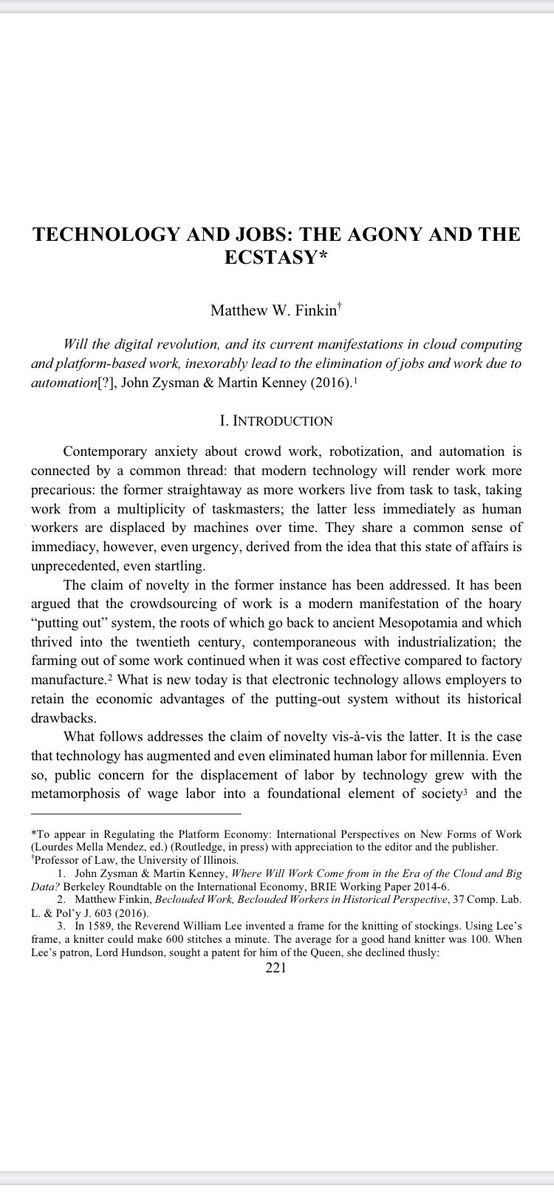
David Kucera and Fernanda Bárcia de Mattos examine how automation impacts on developing countries and its feasibility across various sectors. Their study covers under-researched topics in the “Future of Work” debate, including possible reshoring and its impact on the Global South 
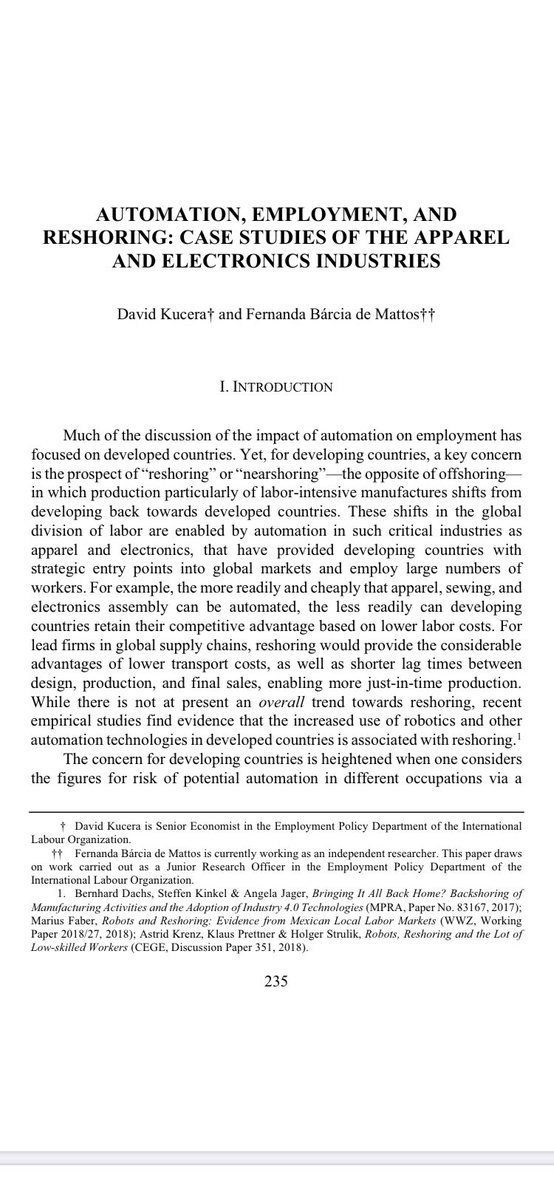
The article of Uma Rani and Parmindeer Jeet Singh concludes the special issue by analyzing how the flow of big data and crowd work from developing to industrialized countries perpetuates imbalances and, contrary to common wisdom, is hardly beneficial for the Global South 

@CjColclough @FrankPasquale @shoshanazuboff @geoplace @AntonioCasilli @adaptland @iajunwa @ILOPubs @ILO_Research
@threader_app please roll this up
@threader_app compile
• • •
Missing some Tweet in this thread? You can try to
force a refresh





